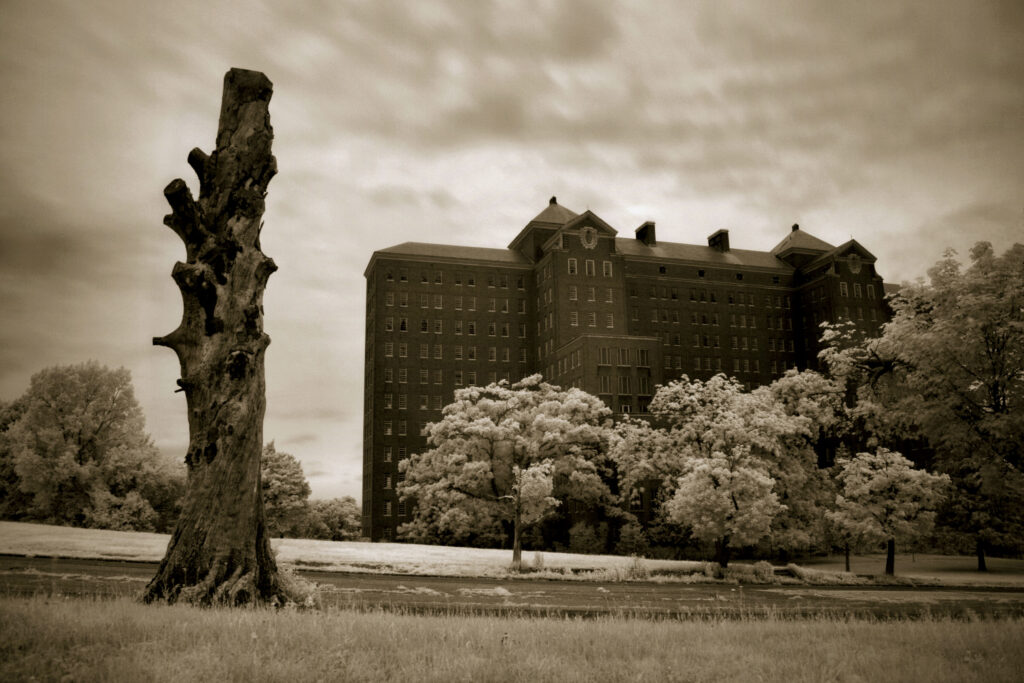It’s almost a daily occurrence when we turn on the news or pick up a newspaper, to see that another deranged individual has sucker punched someone or an innocent bystander has been pushed onto the subway tracks. We see people who have serious mental problems that are homeless that are a danger to themselves and others committing crimes and living in conditions that are unsafe and unhealthy.
The Police admit that many of the crimes committed are by people with serious mental conditions, but if they are brought to a hospital for evaluation, there’s a good chance they won’t spend any time there getting help. Usually, they are given medication and sent back out onto the streets to deal with the same conditions that got them there in the first place. Many have drug and alcohol addictions and a lack of a stable family structure, leaving them in a spiral without hope of rehabilitation. Mental illness can affect all members of our society, from the rich to the poor and we all are affected by it in one way or another.
Mental illness is, of course, nothing new, and in the late 1800s NYC’s mental hospitals were overcrowded, and there was much abuse of patients by staff. Patients were generally just warehoused. A revolutionary idea known as Farm Colonies was tried – mental institutions where patients could live in a country setting, grow their own food, learn trades, be productive, and hopefully one day be rehabilitated and return to society.
Kings County was the first in 1885 to buy land in Suffolk County along the north at Kings Park. Various buildings were built, a farm was created, a railroad spur was made to bring supplies, there was a power plant to supply electricity and heat athletic fields and nearby was a beautiful beach on Long Island Sound.
In 1948, my grandfather took a job at the Kings Park Psychiatric Hospital (above) as a security guard. Soon after, two of his brothers and their wives all got jobs at the hospital working in the kitchen, laundry, and maintenance. They liked working there and it was a good state government job with good benefits. My grandfather was even able to bring patients home to stay the day just to give them a taste of the home life again. My grandmother was a good cook and patients always wanted to come back again. My grandfather always told us that many of the people in the hospital had nice families, nice jobs, and nice homes but they had a mental breakdown from stress or some other condition. Meaning they were just like us, and they should be treated as well as we would treat anyone else. Of course, for a patient to be released to my grandfather, doctors had to give the OK, but he never had any problems bringing them into the family.
At Kings Park Hospital, patients worked in various shops such as the kitchen, laundry, farm and maintaining hospital property, all trades that could serve them well when they were released one day. Much of the staff lived on the grounds or in neighboring towns, it was like its own city and a big boost to the local economy.
It was felt that patients could lead productive lives if the drugs were taken. And around that time, there was a movement among activists that felt patients would do better in smaller settings instead of big institutions. The patient population had grown to 9,300 after World War ll. By the 1990s the population had been greatly reduced at Kings Park as well as at the other psychiatric hospitals such as Central Islip Hospital, Pilgrim State Hospital, and Creedmoor Hospital. The days of the farm colonies had come to an end, many of the buildings were closed and the land sold off for development.
We are left with a system that puts most of its hope in drugs. Many get drugs and sell them or forget to take them or consume alcohol and drugs on the street. They wind up in jail or in a hospital or they live in the subways or on the streets, a danger to themselves and others. In recent years, the number of beds in mental hospitals in the state has been greatly reduced. I feel the Farm Colonies of the past were a better solution to the problem. A society that allows others to live in poor conditions which negatively affect everyone’s quality of life is a society without compassion. Maybe it’s time to bring back the Farm Colonies.



